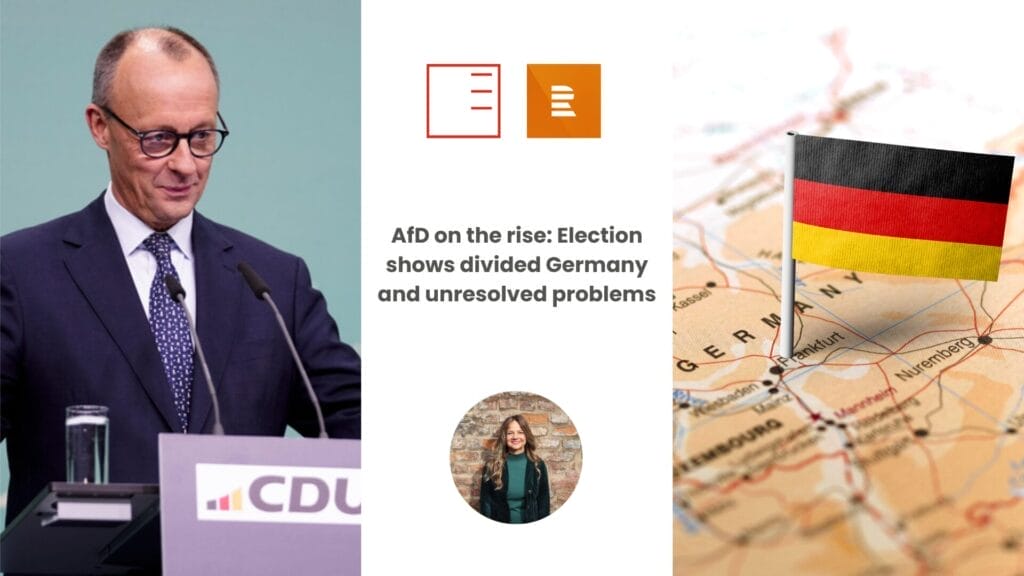
ČRo Plus | AfD on the rise: Election shows divided Germany and unresolved problems
More info 24. 2. 2025
24. 2. 2025
The elections in Germany have once again stirred up the political scene. So far, it looks like a coalition of Christian Democrats and Social Democrats. However, the winner of the elections is said to be the AfD (Alternative for Germany), which, although it came second, has doubled its result since the last elections. What is behind its success and what does it mean for Germany? Tereza Novotná, a political scientist from the EUROPEUM Institute, comments for Czech Radio Plus.
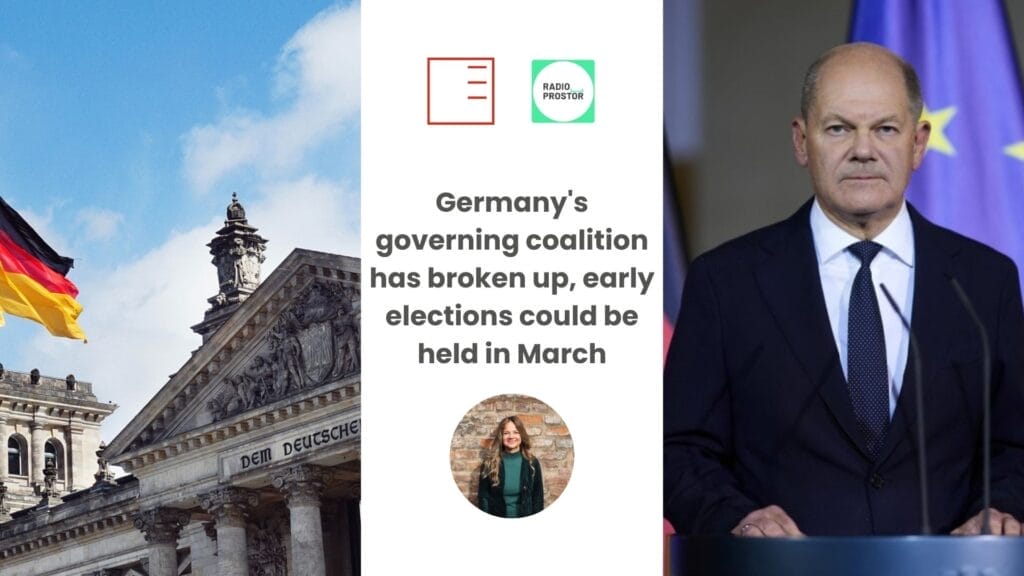
Radio Prostor | Germany's governing coalition has broken up, early elections could be in March
More info 7. 1. 2025
7. 1. 2025
In recent days, Germany's ruling trio coalition has been trying to find a way out of the crisis caused by disagreements over the way forward in the economic recovery. It finally broke up with the departure of the Free Democratic Party. How will the attack on the markets in Magdeburg affect the elections? Tereza Novotná, Associate Research Fellow at EUROPEUM Institute, commented for Radio Prostor.

National Convent | The Union and its Defence The impact of geopolitics, transatlantic relations and technological developments on the security of the European continent
More info 17. 12. 2024
17. 12. 2024
The European security environment has changed fundamentally over the past decade in response to growing geopolitical risks. Russia's invasion of Ukraine, the growing influence of authoritarian powers such as China and Russia, and escalating tensions in key regions such as the Middle East and the Indo-Pacific are reshaping the way Europe views its security and defence. These challenges are leading to a deepening of defence cooperation within and outside the EU, which includes the development of new policies, structures and initiatives, and cooperation with NATO also underlines the need for strategic alignment between European and transatlantic partners. Written by EUROPEUM Institute researcher Zuzana Krulichová and research associate fellow Tereza Novotná.
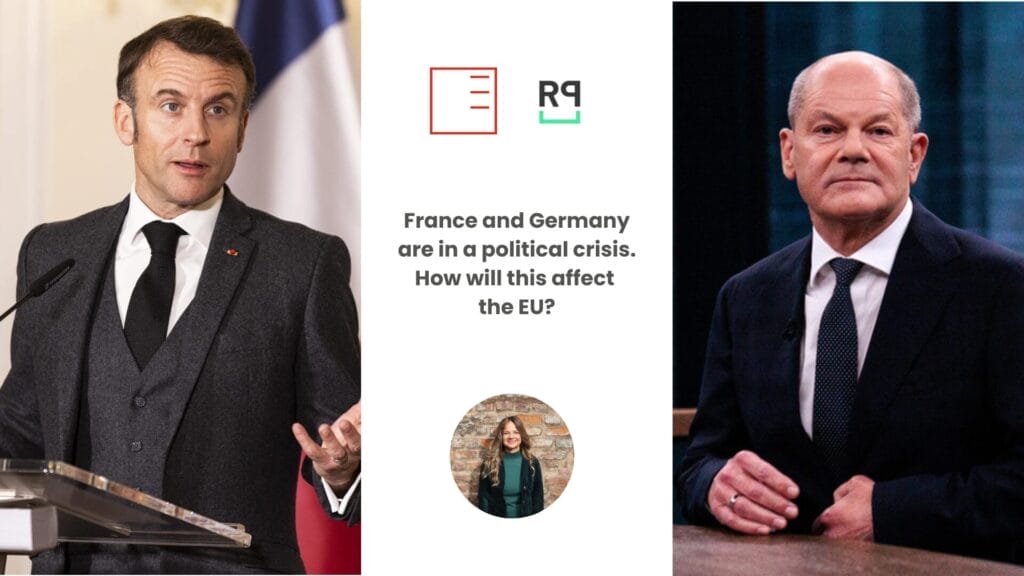
Radio Prostor | France and Germany are in a political crisis. How will this affect the EU?
More info 5. 12. 2024
5. 12. 2024
The government has fallen in France, early elections are coming in Germany. Europe's two strongest economies are in political crisis. Tereza Novotná, Associate Research Fellow at EUROPEUM Institute, commented for Radio Prostor.
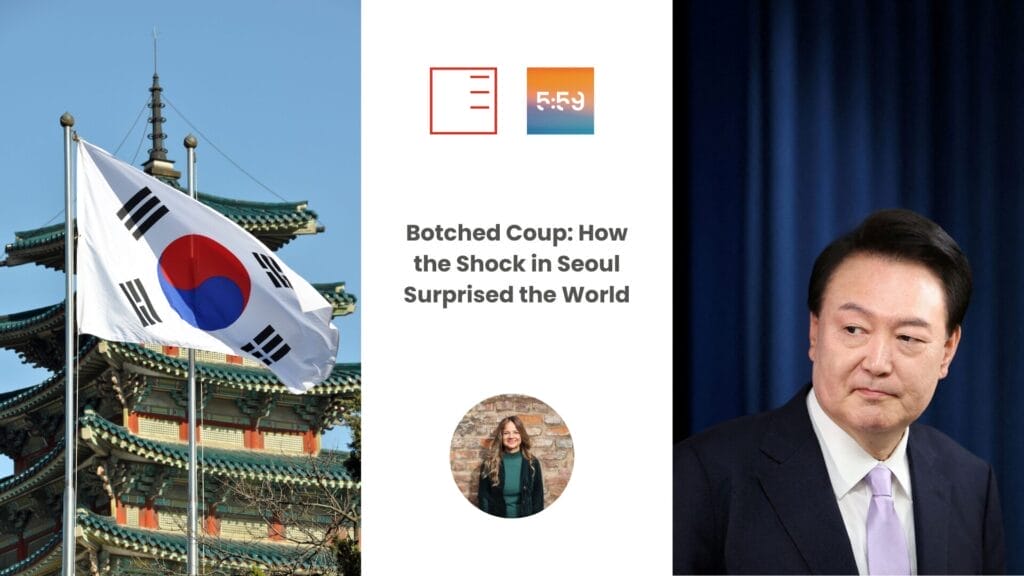
5:59 | Botched coup: How the shock in Seoul surprised the world
More info 5. 12. 2024
5. 12. 2024
In South Korea, President Jun Sok-yol declared martial law on Tuesday, citing alleged sympathies of the opposition with North Korea. The attempted coup failed, but the shock in Seoul remains. Why did these events unfold? And what consequences will the failed coup have? Tereza Novotná, an Associate Research Fellow at EUROPEUM Institute, commented the events on 5:59 podcast of Seznam Zprávy.
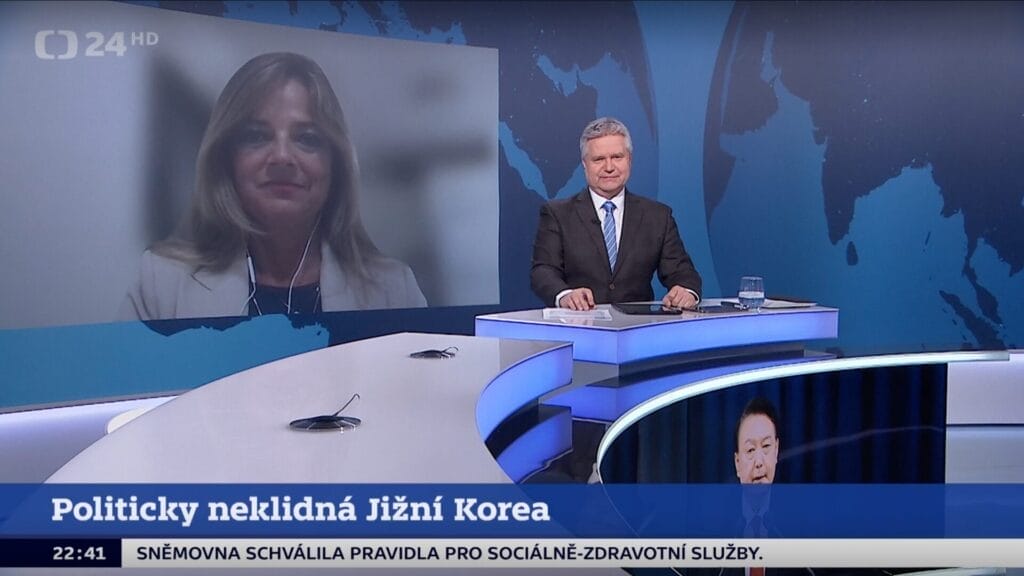
ČT24 | South Korean president surprises the country with martial law
More info 4. 12. 2024
4. 12. 2024
President Yoon Suk-yeol has declared martial law in South Korea. Is this a purely domestic political issue? What does this mean for the country in the future? Tereza Novotná, an Associate Research Fellow at EUROPEUM Institute, commented for ČT24.
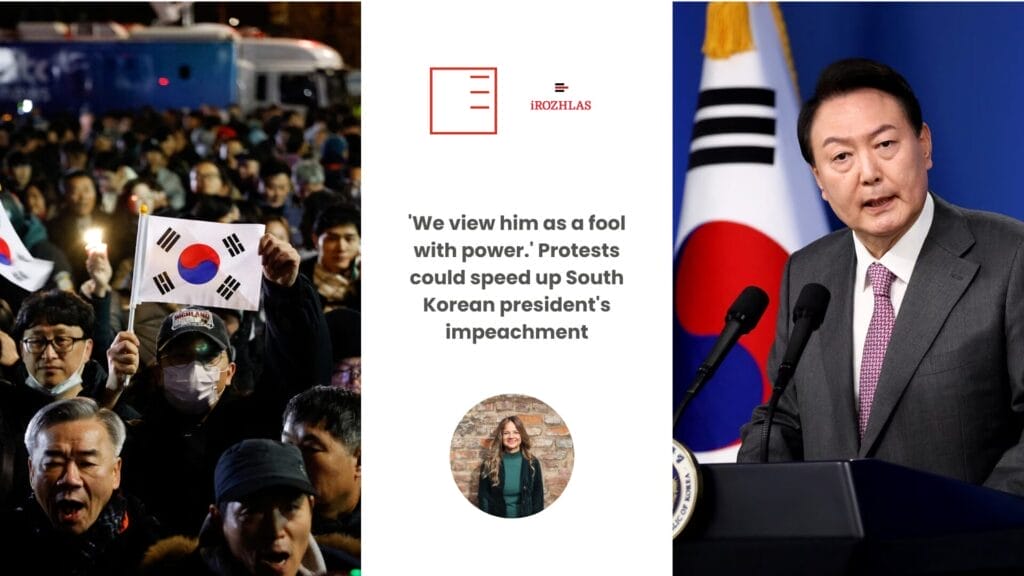
iRozhlas.cz | 'We look at him as a fool with power.' Protests could speed up South Korean president's impeachment
More info 4. 12. 2024
4. 12. 2024
Martial law, which was declared by South Korean President Yoon Suk-yeol on Tuesday night, lasted six hours. South Koreans have been in the streets ever since, demanding the President's resignation or impeachment. EUROPEUM Institute Associate Research Fellow Tereza Novotná commented on the situation for iRozhlas.cz.

Radio Prostor | Martial law in South Korea. How can we take the President’s argument about preserving democracy?
More info 4. 12. 2024
4. 12. 2024
The South Korean President defended the declaration of martial law as a protection of democracy. How can this argument be perceived? Tereza Novotná, Associate Research Fellow at EUROPEUM Institute, commented for Radio Prostor.
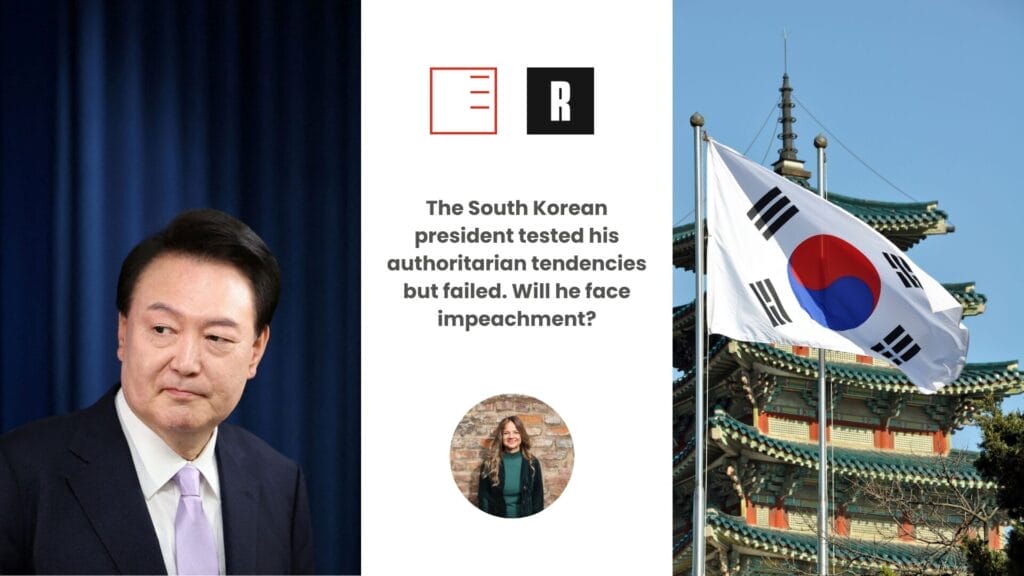
Respekt | The South Korean president tested his authoritarian tendencies but failed. Will he face impeachment?
More info 4. 12. 2024
4. 12. 2024
Martial law declared by the President of South Korea lasted six hours. However, President Yoon Suk-yeol did not present any evidence to accuse the opposition of collaborating with North Korea. South Korean MPs and citizens, who, like the police, gathered at Parliament, created such pressure that the head of state backed down from his decision after a few hours. Tereza Novotná, an Associate Research Fellow at EUROPEUM Institute, commented on the situation in the podcast Výtah of Respekt magazine.
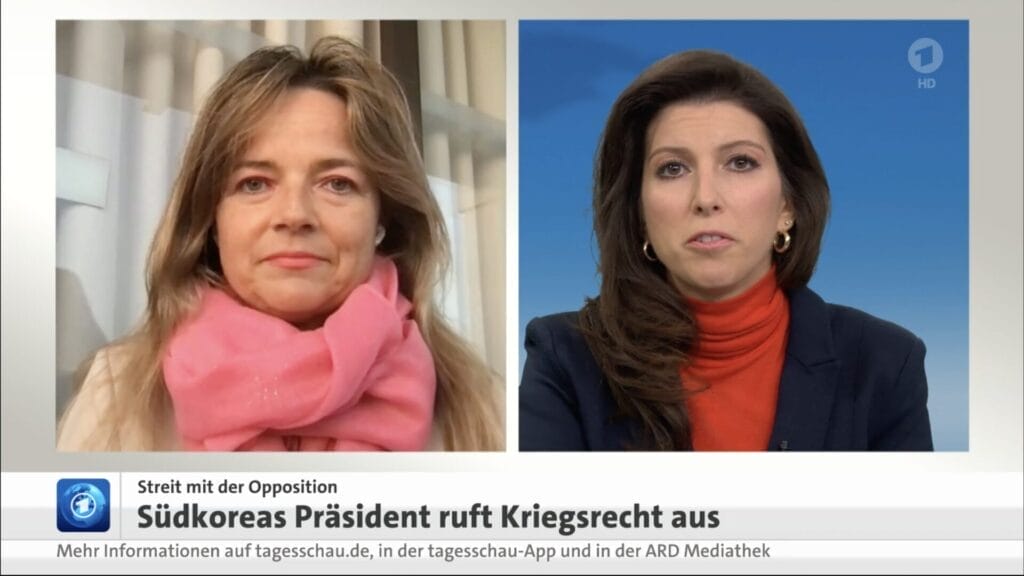
Tagesschau | South Korea's president imposed martial law and then lifted it
More info 3. 12. 2024
3. 12. 2024
South Korean president Yun Sok-jol unexpectedly declared martial law and sent troops into parliament. The institution then rejected martial law, as did members of the president's party. South Korea's head of state declared martial law amid a dispute over the national budget. The President made the surprise announcement in a televised speech. In the speech, he accused the opposition of sympathizing with North Korea and paralyzing the government with anti-state activities. Tereza Novotná, Research Associate at EUROPEUM Institute, commented for Tagesschau.
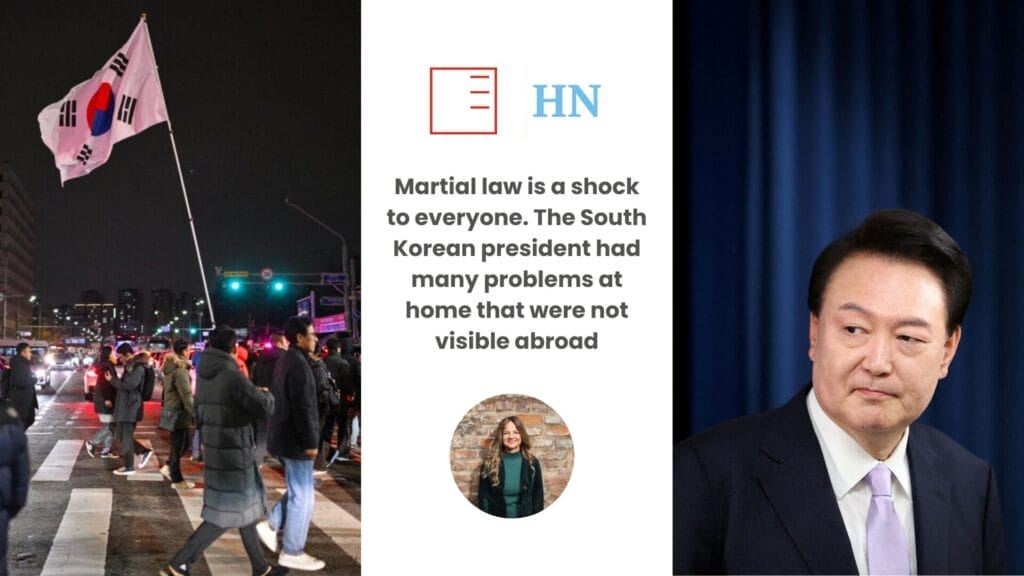
Hospodářské noviny | Martial law is a shock for everyone. South Korean president had a lot of problems at home that were not visible abroad
More info 3. 12. 2024
3. 12. 2024
South Korean MPs vote unanimously against martial law. Demonstrators and parliamentary assistants clash at the entrances to the National Assembly, which has united against South Korean President Jun Sok-jool's surprise overnight decision to declare martial law for the first time since 1980.
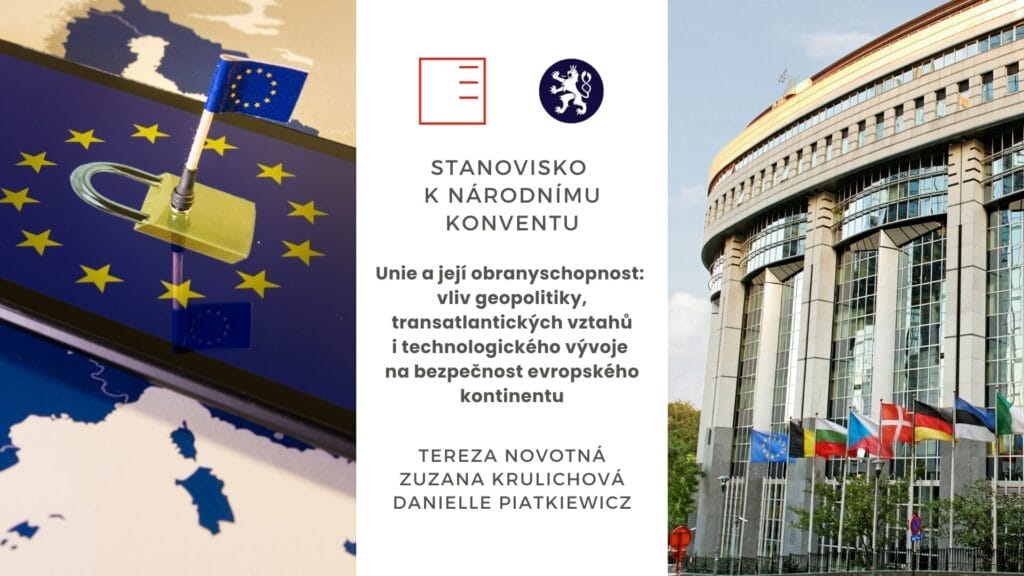
Statement on the National Convention | The Union and its defence
More info 2. 12. 2024
2. 12. 2024
Over the past decade, the European security environment has undergone significant changes, from the Russian invasion of Ukraine and escalating tensions in the Middle East to China's growing geopolitical ambitions. Europe is thus compelled to expand defence cooperation and strengthen its defence and security capabilities. These developments are accelerating EU Member States' efforts to develop robust common security and defence structures and policies to ensure the EU's stable position in the global geopolitical order. Writes EUROPEUM Institute researchers Zuzana Krulichová and Danielle Piatkiewicz and Associate Research Fellow Tereza Novotná.